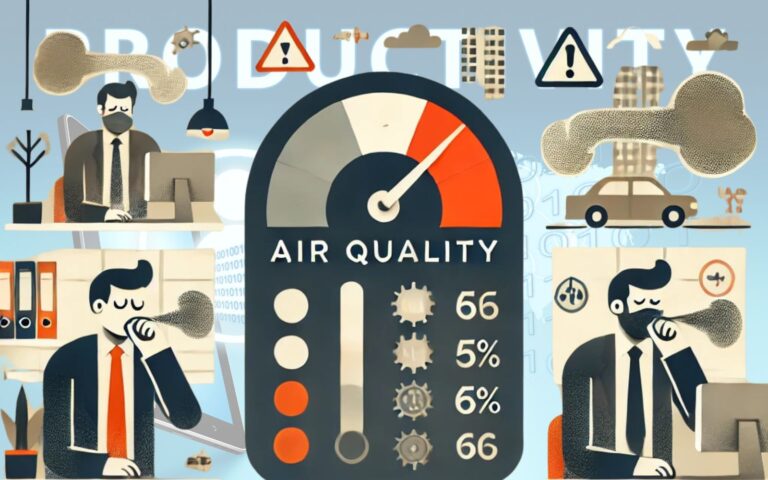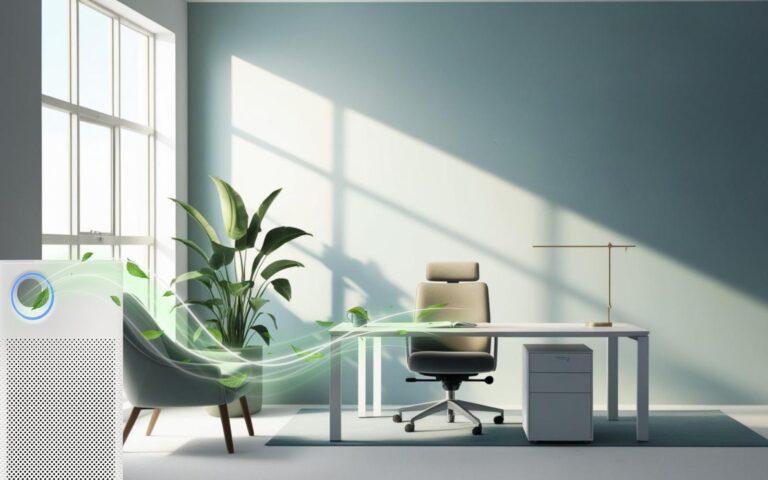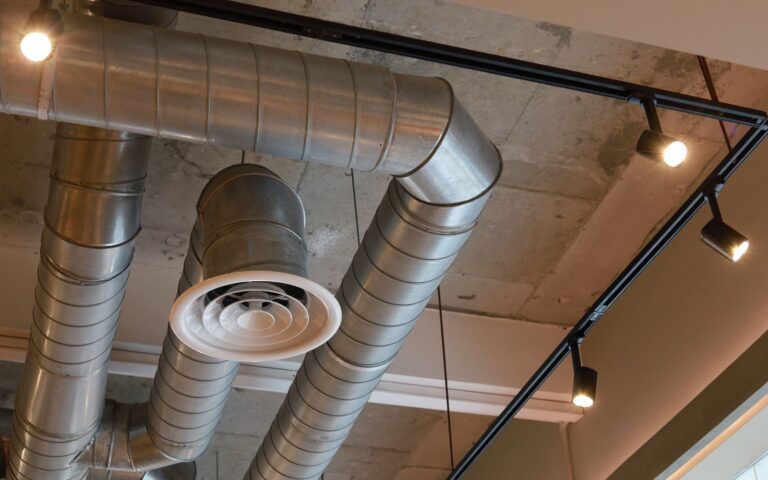Improving Indoor Air Quality Naturally: Easy Tips for a Healthier Home

Did you know that the air inside your home can be up to five times more polluted than the outside?
It’s true! With people spending about 90% of their time indoors, improving indoor air quality naturally is more important than ever. Poor indoor air quality can lead to various health risks, from respiratory diseases to cardiovascular issues.
Thankfully, there are easy, natural ways to improve air quality without relying on chemicals or expensive equipment. In this guide, we’ll share simple tips to breathe cleaner, fresher air at home.
Key Takeaways – Improving Indoor Air Quality Naturally
- Natural solutions can improve indoor air quality and reduce exposure to harmful indoor air pollutants.
- Better ventilation, regular cleaning, and natural air filters like plants can greatly impact air quality.
- Control moisture levels and minimize sources of indoor air pollution for a healthier living environment.
Ventilation: Let Fresh Air In

Natural ventilation is one of the best ways to improve indoor air quality. Fresh air can help remove indoor air pollutants like dust, pet dander, and volatile organic compounds (VOCs) from cleaning products.
How to Improve Ventilation:
- Open windows regularly, especially while cooking or cleaning, to let out polluted air and bring in fresh air.
- Install exhaust fans in bathrooms and kitchens to expel cooking fumes and moisture.
- Use air conditioning systems with clean air ducts to filter out smaller particles from the air.
Use Indoor Plants as Natural Air Cleaners

Indoor plants add beauty to your home and act as natural air purifiers. They absorb carbon dioxide and release oxygen; some even filter out common indoor air pollutants like benzene, formaldehyde, and trichloroethylene.
Best Plants for Improving Indoor Air Quality:
- Spider Plant: Easy to care for and great for filtering out toxins.
- Snake Plant (Mother-in-Law’s Tongue): Effective at removing pollutants and releasing oxygen at night.
- Peace Lily: Filters out mold spores, making it ideal for damp areas.
- Aloe Vera: Absorbs harmful VOCs and acts as a natural humidifier.
Reduce Indoor Air Pollutants With Regular Cleaning

Dust, pet dander, and mold spores are the most common indoor air pollutants. Regular cleaning can help reduce their presence and improve overall air quality.
Cleaning Tips:
- Dust surfaces with a damp cloth instead of a dry one, which can just spread particles around.
- Vacuum carpets and rugs at least once a week with a vacuum cleaner equipped with a HEPA filter to effectively capture smaller particles.
- Wash bedding regularly to remove pet dander, dust mites, and other pollutants.
- Clean air ducts and filters in your HVAC system to keep air circulating clean and fresh.
Control Humidity to Prevent Mold and Mildew

Excess moisture in your home can lead to mold growth, harming air quality. Controlling humidity levels can help keep these problems at bay.
How to Control Moisture:
- Use a dehumidifier in damp areas like basements to maintain a 30-50% humidity level.
- Install exhaust fans in moisture-prone areas, such as kitchens and bathrooms.
- Fix leaks and dry damp areas immediately to prevent mold growth.
Avoid Synthetic Air Fresheners and Choose Natural Scents

Synthetic air fresheners and scented candles may smell nice, but they often release harmful chemicals, affecting indoor air quality. Opt for natural alternatives instead.
Natural Alternatives:
- Use essential oils with a diffuser to create a pleasant aroma without the harmful chemicals in many air fresheners.
- Make your air fresheners using natural ingredients like lemon, lavender, and baking soda.
- Burn soy or beeswax candles, which don’t emit toxic fumes like paraffin candles.
Invest in Air Purifiers and Portable Air Cleaners

While natural methods are effective, sometimes using an air purifier or portable air cleaner can be a great way to tackle stubborn air pollutants. These devices can capture dust, smoke, cooking fumes, and other pollutants, improving air quality.
Choosing the Right Air Cleaner:
- Look for a HEPA filter to catch small particles like pet dander and pollen.
- Check the size of the air purifier to ensure it fits the space you’re using it in.
- Replace filters regularly to maintain the efficiency of the air purifier.
Control Indoor Sources of Air Pollution

Many indoor air pollutants come from the products and materials we use every day. From cleaning supplies to gas appliances, these can introduce harmful chemicals and gases into your home. Minimizing their use can help improve indoor air quality.
How to Control Sources:
- Switch to natural cleaning products that don’t release VOCs and other pollutants.
- Use gas appliances responsibly and ensure they are well-ventilated to prevent the buildup of harmful gases like carbon monoxide.
- Avoid smoking indoors, as tobacco smoke is a significant contributor to poor indoor air quality.
Maintain HVAC Systems for Good Air Quality

Your HVAC system plays a crucial role in maintaining air quality. Regular maintenance can help ensure it’s working effectively to filter out pollutants and circulate clean air.
HVAC Maintenance Tips:
- Change air filters regularly, ideally every 3 months, to ensure good air quality.
- Clean air ducts to remove any dust, mold, or other pollutants that may have accumulated.
- Service your HVAC system regularly to catch any issues affecting air quality.
Reduce Exposure to Outdoor Air Pollution

Outdoor air pollution can also affect indoor air quality. Proper barriers and steps to limit exposure to outdoor pollutants can improve indoor air quality.
How to Limit Exposure:
- Keep windows closed during poor outdoor air quality, such as during high pollution days or pollen seasons.
- Install air filters that block out pollutants from entering your home.
- Use natural ventilation when outdoor air quality is at its best.
Summary
Improving indoor air quality naturally is about creating habits that reduce pollutants and introduce clean air.
Whether through regular cleaning, adding indoor plants, or choosing natural scents, each small step can make a big difference.
Maintaining your HVAC system, ventilating regularly, and being mindful of products that introduce harmful chemicals can lead to a healthier and fresher home environment.
With these tips, you can breathe easy, knowing you’re doing your best to keep your home’s air clean and safe.
Frequently Asked Questions
How Can I Improve Indoor Air Quality Naturally?
To improve indoor air quality naturally, open windows for fresh air, use houseplants, opt for natural cleaning products, and regularly clean your home to reduce dust and allergens.
Do Houseplants Help With Air Quality?
Yes, certain houseplants, such as peace lilies, snake plants, and spider plants, can filter out harmful chemicals and improve the oxygen levels in your home.
What Should I Avoid to Prevent Poor Indoor Air Quality?
Avoid using synthetic air fresheners, smoking indoors, and harsh cleaning chemicals that release VOCs. Also, ensure gas stoves and other gas appliances are properly ventilated.
How Often Should I Change My HVAC Filters?
Changing HVAC filters every 3 months is recommended, but this may vary depending on how often you use your system and the quality of your air filters.
Why Is Indoor Air Quality Important for Health?
Poor indoor air quality can lead to respiratory diseases, allergies, and even more severe health risks like cardiovascular disease and lung cancer. Ensuring good air quality helps promote better overall well-being.





